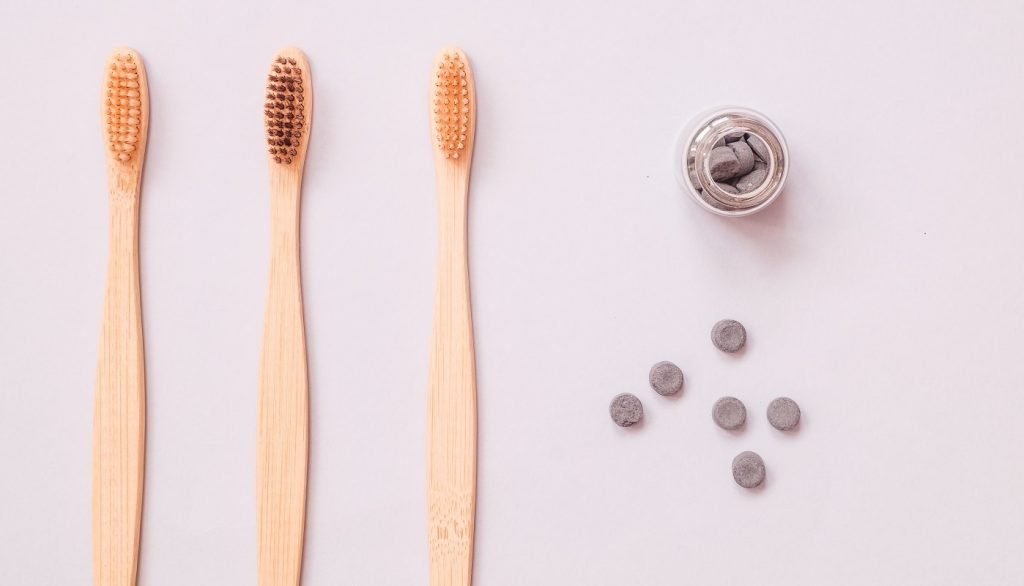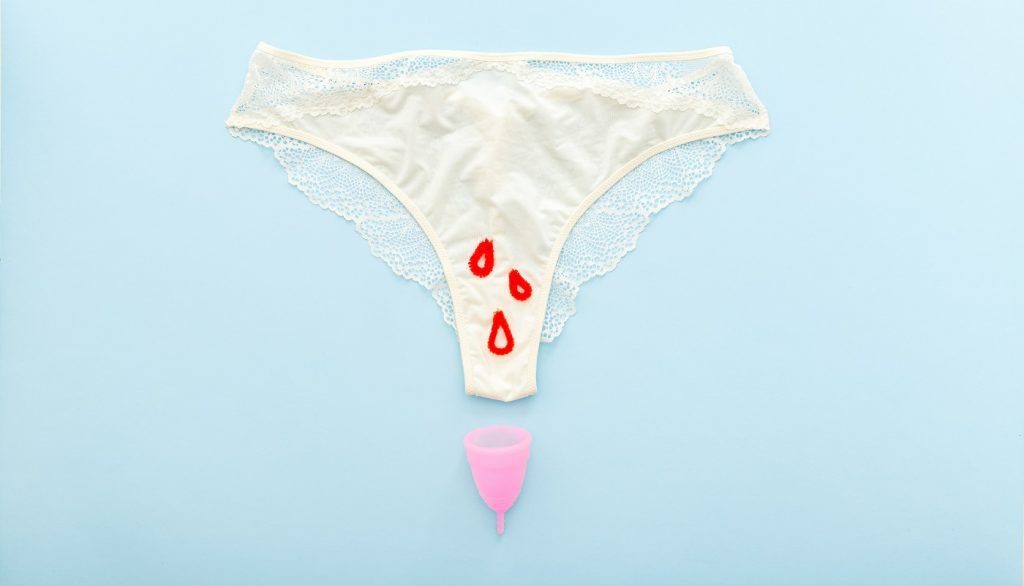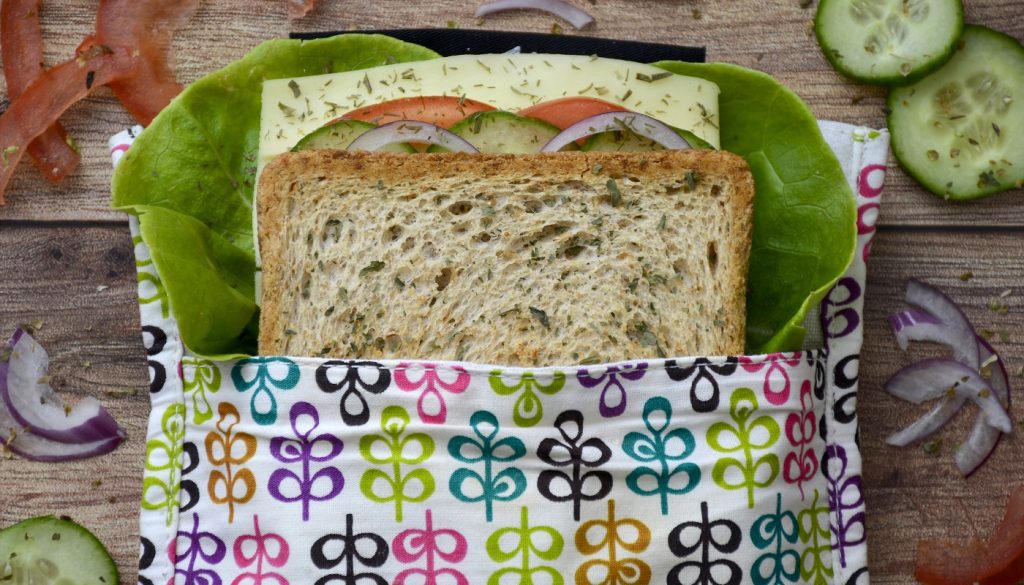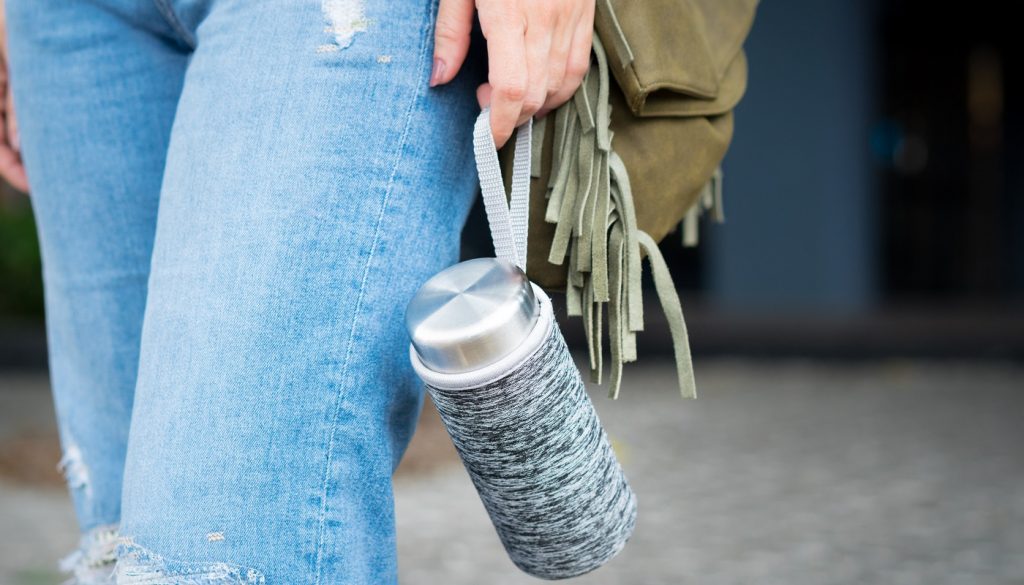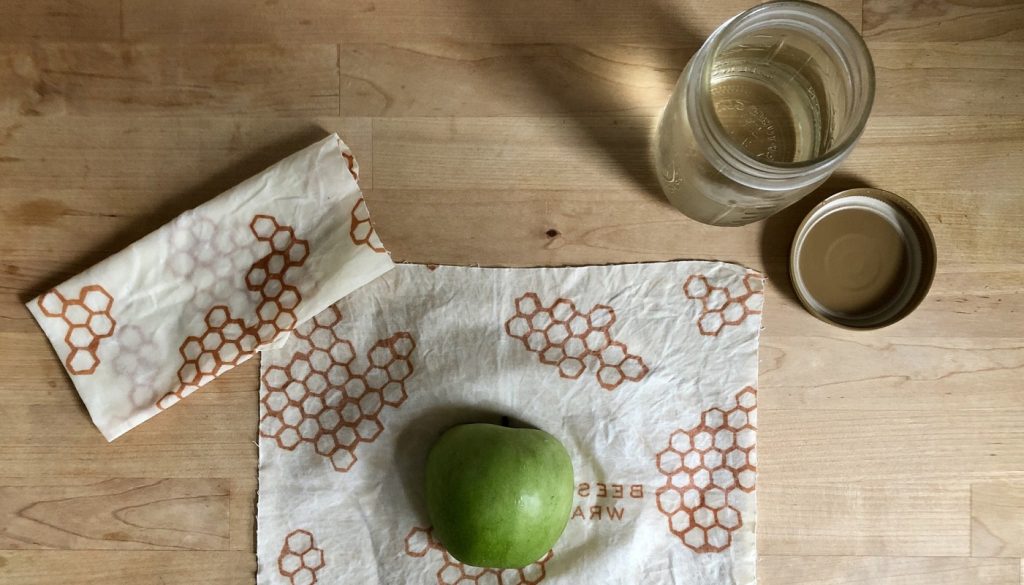I find that the kitchen is where I have the hardest time staying eco friendly. It seems like everything I purchase has so much packaging! And if I’m not careful with what I buy, I end up with a ton of waste at the end of the week. Floppy, soggy vegetables that I’ve forgotten about in the depths of my crisper drawer are a fairly regular occurrence.
So if you’re anything like me, you’re always on the hunt for easy tips to make your kitchen more eco friendly!
What makes a kitchen eco friendly?
We all want to be a little more green, but what makes a kitchen truly eco friendly? A lot of it comes down to the amount of garbage you’re producing. There’s a ton of single-use packaging out there in grocery land, and it’s not always easy to use up all the food you’ve bought for the week. Even your cookware can have a short shelf life before needing to be tossed.
Limiting the amount of food and packaging waste while investing in good quality products will go a long way to reducing your kitchen’s carbon footprint.
3 new skills to make your food prep more eco friendly
There are some small changes you can make to your weekly food prep routine to make your kitchen a whole lot greener.
Cook for an army
Cooking in bulk can have a lot of positive environmental impact, and it’s more convenient. Think about it. Prepping multiple meals all at once reduces the amount of clean up, so less water gets used washing dishes. You can cook multiple meals at the same time in the oven, reducing energy expenditure. And best of all, a frozen tray of lasagna isn’t going to spoil. You’ll always have a meal available in the freezer when you’ve run out of time on a busy weeknight.
To cook in bulk, you need to buy in bulk, and that can have its own benefits. Try buying in large quantities to reduce the amount of packaging required, as well as the number of trips to the grocery store. Look for items that don’t go bad, like dried noodles or beans.
I’m going to add a caveat here. Sometimes you need to know when you’re biting off more than you can chew, so to speak. If you’ve bought cauliflower three weeks in a row with the intention of making cauliflower rice, and each week it’s ended up in the trash can, it may be time to give up the dream. Figure out what makes sense to purchase in bulk for your family, and buy less of the items you end up ditching at the end of the week.
Try cooking from scratch
Cooking homemade meals, rather than relying on premade meals, can help make your kitchen more sustainable. Plus it’s a heck of a lot healthier as well.
Premade meals rely pretty heavily on plastic packaging. Even when this plastic can be recycled, it still takes a heavy toll on the environment. Cooking your meals from scratch and packaging them in eco friendly, reusable containers for individual servings is a much better way to go.
Become a pro at eco friendly food storage
I’ve already admitted one of my biggest sins. It can be very difficult to manage food storage before fresh ingredients go bad. While you may still have the odd head of broccoli that goes mushy, storing your food properly can have a dramatic effect on its shelf life. It won’t take much effort if you follow some simple guidelines.
When you get home from the grocery store, transfer your purchases to the containers that they are best suited for. Airtight glass jars work well for keeping dry goods from going stale. You can reuse a mason jar, or purchase some eco friendly food storage containers.
For fruits and veggies, check which items you should be refrigerating, and which should be left in a cool, dry place. You can also take items on the verge of being overripe and freeze them – this works really well for fruits such as bananas and strawberries. When you do need to refrigerate, wash and thoroughly dry your produce before wrapping it in beeswax paper. I personally like Beeswrap, an American company which uses ethically sourced ingredients. These work wonders for cheese, too!
3 grocery store swaps to produce less waste
After you have your food prepping skills down pat, you can get to work on these grocery store swaps. These are pretty effortless, and can have a huge impact for Mother Earth as they cut down on waste.
BYOPB (Bring your own produce bag)
One of the easiest grocery store swaps you can make is to switch to reusable produce bags. This is a super simple switch especially if you’re already bringing your own reusable bags to the grocery store. Not only are these bags better for the environment, they’ll actually increase the lifespan of your veggies. Leaving your veggies trapped in plastic prevents airflow, and can lead to premature spoilage.
Check out the bags @mindfulgoods uses in her local grocery store, and pick up a set of these drawstring bags here.
Avoid plastic packaging
Another effortless swap is to avoid plastic packaging. Choose to not purchase anything that comes with unnecessary packaging if there’s an alternative available. Often you’ll find the same items that are packaged together in nylon bags are also available in singles.
Skip the middle aisles
You probably already know that most grocery stores are laid out with their fresh produce around the perimeter, and their packaged (and processed) items through the aisles. Besides being better for your health and cheaper, detouring around the middle aisles can help you use less packaging too.
3 essential eco friendly kitchen products
As much as I am always looking for ways to shop less, I’m a sucker for a good kitchen gadget or hack that makes my life easier and more eco friendly. Who says being environmentally conscious has to be boring?
The best compost bin ever
Whether you have your own compost heap, or your city has a green bin program, composting is a great way to keep biodegradable foods out of landfill. The only unfortunate part is that compost can be a dirty business. While it’s convenient to keep a compost bowl in your kitchen, it can attract some gross critters and stink up the room.
That’s why it’s so essential that you get yourself a countertop compost bin that works well, and keeps odors from forming. I personally love BioBag which uses a compostable lining that keeps the bin clean.
Reusable paper towels
Paper towels are handy in the kitchen for quick cleanup, but using paper products unnecessarily contributes to deforestation. There’s a great alternative that provides all the convenience of your tearaway sheets, but is completely reusable. They absorb better than the paper products, and some are completely biodegradable for when you do have to throw them out. Get some 100% cotton towels at wellearthgoods.
The last frying pan you’ll ever buy
I used to go through a frying pan every few years. When making my purchases, I assumed that Teflon coated anything would last forever, but no matter what I did I ended up scratching the surface. Then I read that there’s a ton of toxic chemicals in Teflon which flake off into food when the coating is damaged. They’re also bad for the environment, and require replacing fairly consistently, even when treated well.
That’s when I made the switch to a cast iron frying pan. These are more or less indestructible, and have a low environmental impact so you aren’t adding to the trash heap. A well-seasoned pan also has the same non-stick properties that Teflon has, without the chemicals. Best of all, these pans can be heated to extreme temperatures, and transferred directly into an oven.
You may get lucky enough to thrift one of these pans (double environmental win… score!) but if not look for one at Lodge Cast Iron. If you treat it well, it will be the last pan you ever need to purchase.
With these new skills, swaps, and products, you can reduce your household waste pretty much immediately.
